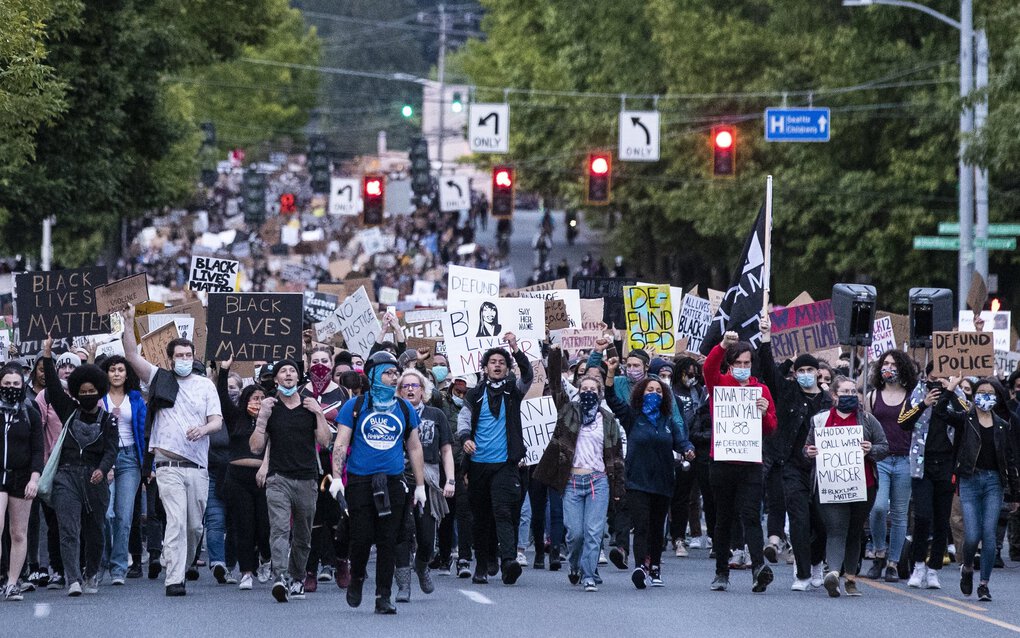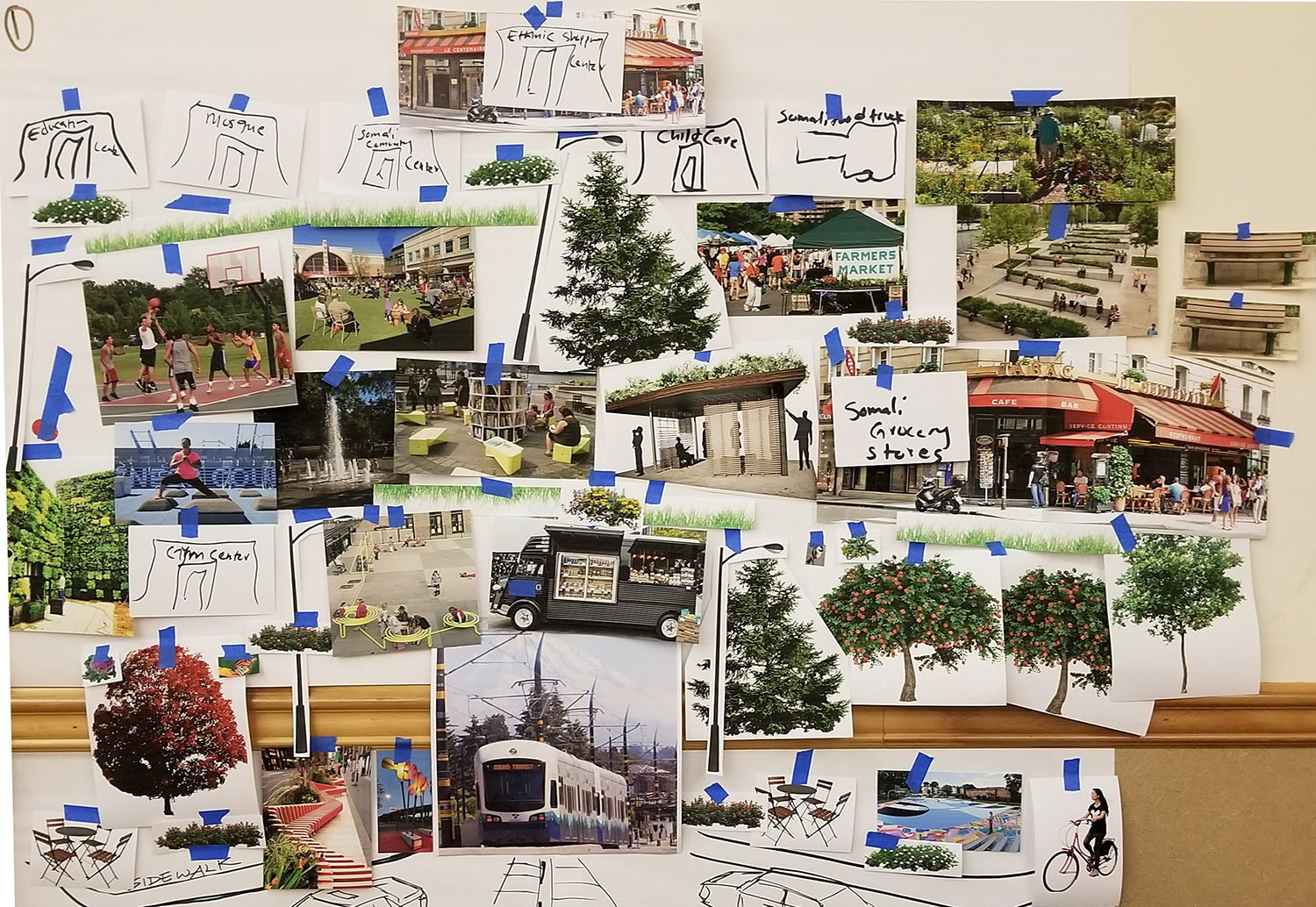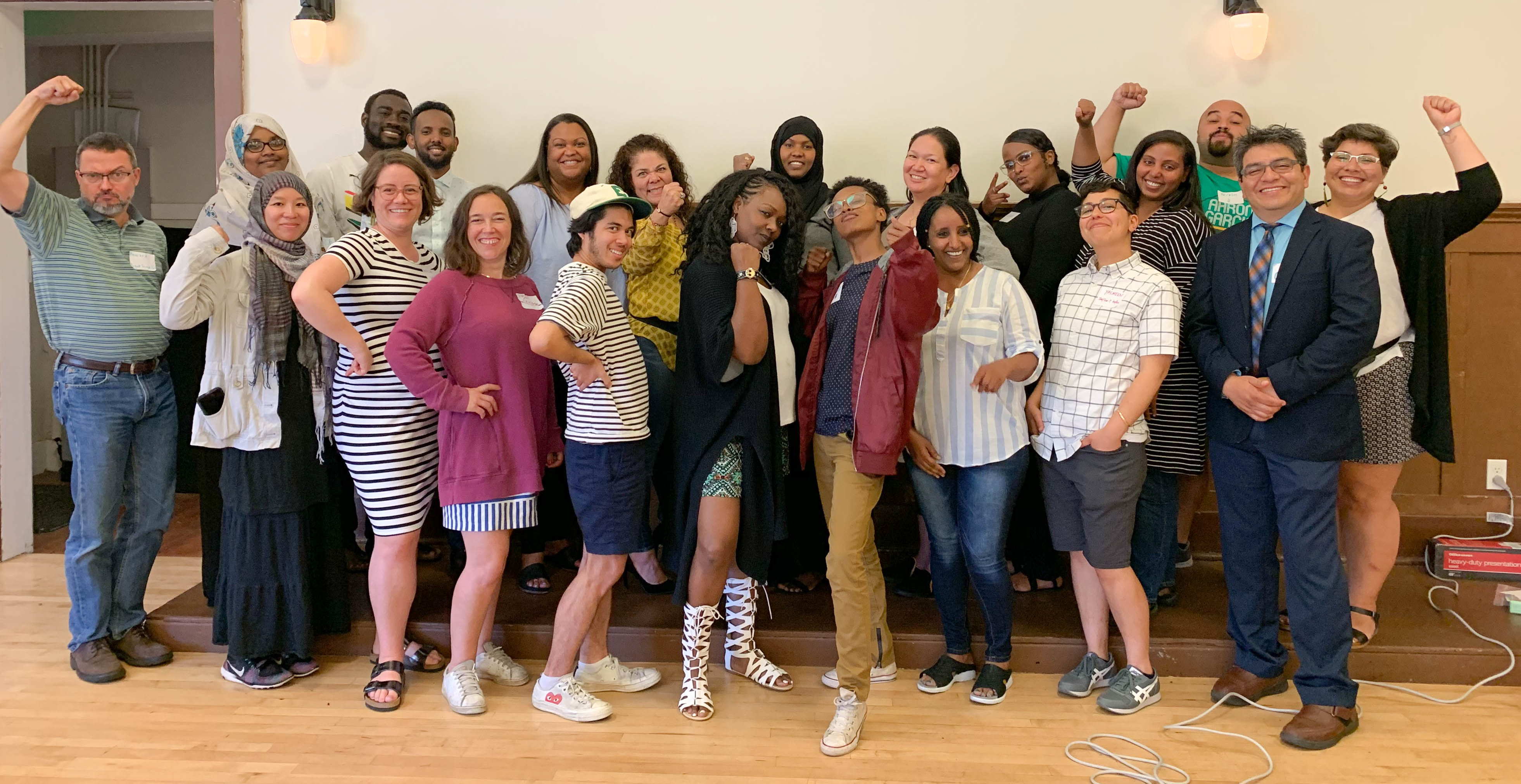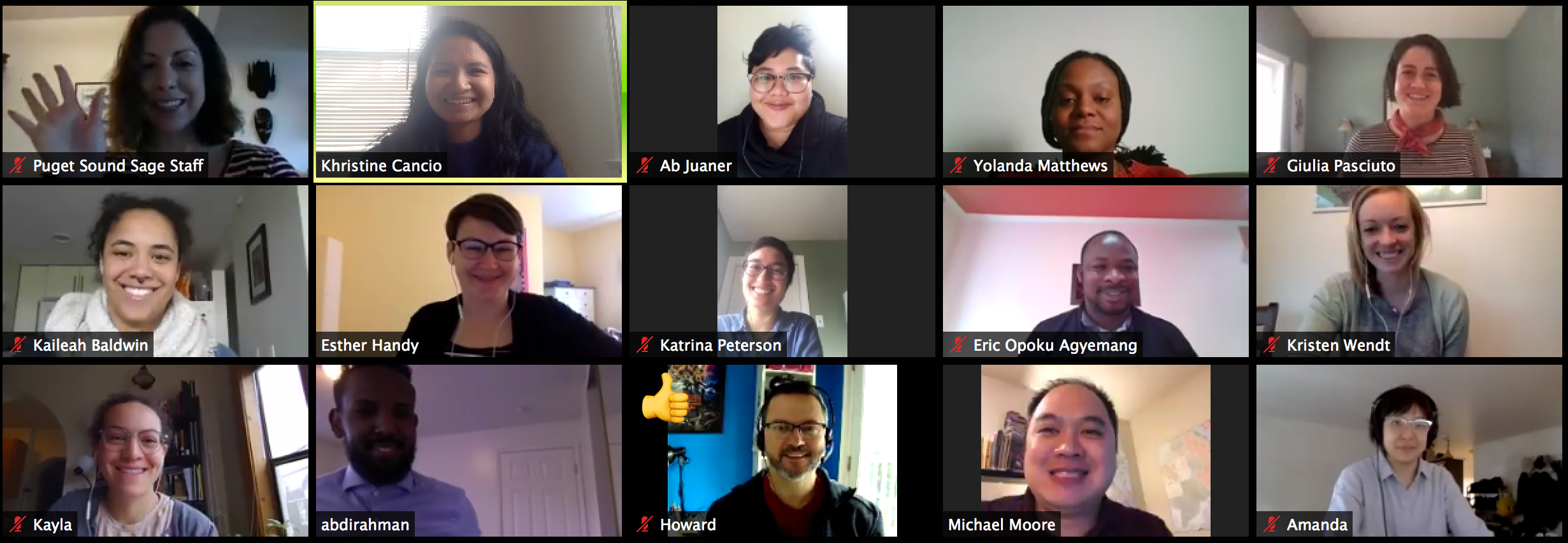Across our country, people are coming together in anguish and outrage to demonstrate that #BlackLivesMatter and to replace a culture of white supremacy with a democracy where the people’s voices are heard. In cities and suburbs and towns across the country, we are demanding justice and taking to the streets to protest anti-Black racism and police brutality.
At Puget Sound Sage, we honor the lives of George Floyd, Breonna Taylor, Ahmaud Arbery, Tony McDade, Manuel Ellis, Charleena Lyles, and so many others who’ve been murdered by the state and its vigilantes. We stand in solidarity with Black organizers in Seattle, Tacoma, Minneapolis, Louisville, Atlanta and across the country in their demands for Black Liberation.
Time and time again, we witness the horrors committed against Black people by police on neighborhood streets and in living rooms, in the dark of night and the light of day. We are witnessing a response to centuries of anti-Black racism and oppression that has torn apart Black communities through slavery, police brutality, and incarceration.
We acknowledge the lifelong work of Black and Indigenous organizers, past and present, who demand that we rewrite the rules, and transform our neighborhoods into places where everyone can walk safely on our streets.
The time is now to re-imagine our communities.
Police brutality is deeply linked to economic violence, and the extraction of resources from Black communities through redlining, wage theft, exploitation, and environmental racism.
We must invest in healthy communities, which means investing in Black land ownership, housing that’s affordable, living wage green jobs, access to healthy food, clean air and water, energy democracy, restorative justice, and community-based safety strategies.
As an organization, we continue to dismantle the structures that extract wealth from our Black communities. We recommit to fighting for a new economy, where Black people and communities have self-determination and control over housing, land, energy, and work.
We join in the call to defund the Seattle Police Department, and re-invest in community-led solutions.
This is not the time for incremental measures. Tinkering around the edges to fix a broken system has never been enough. We can’t reform an institution entrenched in white supremacy, founded with the purpose of controlling and destroying Black communities. We need a transformational change in our approach to public safety.
We affirm the demands laid out last week by COVID-19 Mutual Aid Seattle which include:
-
- Seattle’s Mayor and City Council must immediately defund Seattle Police Department (SPD). The city faces a $300 million budget shortfall due to COVID-19. Seattle City Council should propose and vote for a 50% cut from the $363 million already budgeted for SPD.
-
- Seattle’s Mayor and City Council must protect and expand investments to make our communities safe, prioritizing community-led health and safety strategies. Full access to affordable housing, community-based anti-violence programs, trauma services and treatment, universal childcare, and free public transit are just a few of the non-police solutions to social problems.
-
- The Seattle City Attorney must not prosecute protesters, including those arrested violating curfew, and those living in encampments. Protesters took to the streets to call for the end of the murders of Black people by police, and SPD unnecessarily escalated tensions and violence.
We also affirm King County Equity Now’s demands to reduce the Seattle Police Department budget by half to help cover the City’s deficit instead of defunding education or scaling back social services needed during a pandemic and economic recession. In addition, we support:
-
- Seattle City Council, King County Council, and the Seattle Mayor accept current proposals from Black-led, community-based organizations to maximize the following underutilized public land for community benefit.
-
- Invest $50 million dollars of such repurposed funds a) into Black-led community-based organizations and b) into property acquisition for Black-led community-based organizations. It’s equally important – as these country-wide protests have illuminated – to shift resources directly into the Black community to ensure that COVID19 does not exacerbate the racial resource/wealth gap.
-
- Seattle Public School Board and Seattle Public School Superintendent Denise Juneau immediately sever all existing contracts, and all financial ties, with the Seattle Police Department.
We know that many of you have been on the streets and showing up in a variety of ways over the past two weeks. During the protests, we’ve seen shows of support as healthcare workers cheer out hospital windows, neighbors wave from their apartment buildings, drivers honk as marches go by, and bus drivers refuse to transport protestors to jail.
For those who are able, we invite you to join us for the following actions in the coming weeks:
Black Lives Matter Seattle-King County
Statewide March & General Strike
Friday, June 12th
Black Lives Matter Seattle-King County is calling for a statewide day of action in support of all Black lives in Washington State tomorrow on Friday, June 12th. The day of action will include a general strike and a silent march to honor and mourn the lives lost to police brutality and institutional racism. For those who can’t march in Seattle, BLM Seattle-King County encourages local groups to organize a march in their communities.
We know that not everyone can attend a march for various reasons. The BLM chapter has made it very clear that they don’t want to put people at risk in the midst of the COVID-19 pandemic. So for those who can’t participate in a physical gathering, they urge you to participate in the general strike and in actions that they post online throughout the day.
If you can’t march, take this time as an opportunity to familiarize yourself with your local elected officials. This includes your mayor, city council, county executive, county council, county prosecutor, and state representatives. It helps if you collaborate with friends and neighbors, and reach out to people you know who are more familiar with the local issues. It’s up to you to make sure your local officials feel the pressure to improve police accountability and dismantle the structural racism that has been built into all of our institutions.
King County Equity Now
Juneteenth Freedom March
Friday 6/19 at 3pm
23rd and Union St.
Join King County Equity Now next Friday for their Juneteenth Freedom March & People’s Assembly! King County Equity Now Coalition is an 18-year campaign to bring members of the African Diaspora in King County to equity across key metrics (e.g., homeownership, wealth, birth rates, mortality rates, college admissions, organizational control, etc).
It is important, especially for those new to this movement, to learn the deep history of racial and social justice work in Seattle and King County. There are many Black-led organizations who have been doing this work for years, decades even, and it is vital now more than ever to learn about the issues they advocate for.
Key groups we are following:
If you haven’t already, we encourage you to follow key local and national groups demanding the transformational changes needed to defund the police and re-invest in community:
photo by The Seattle Times
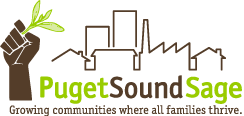
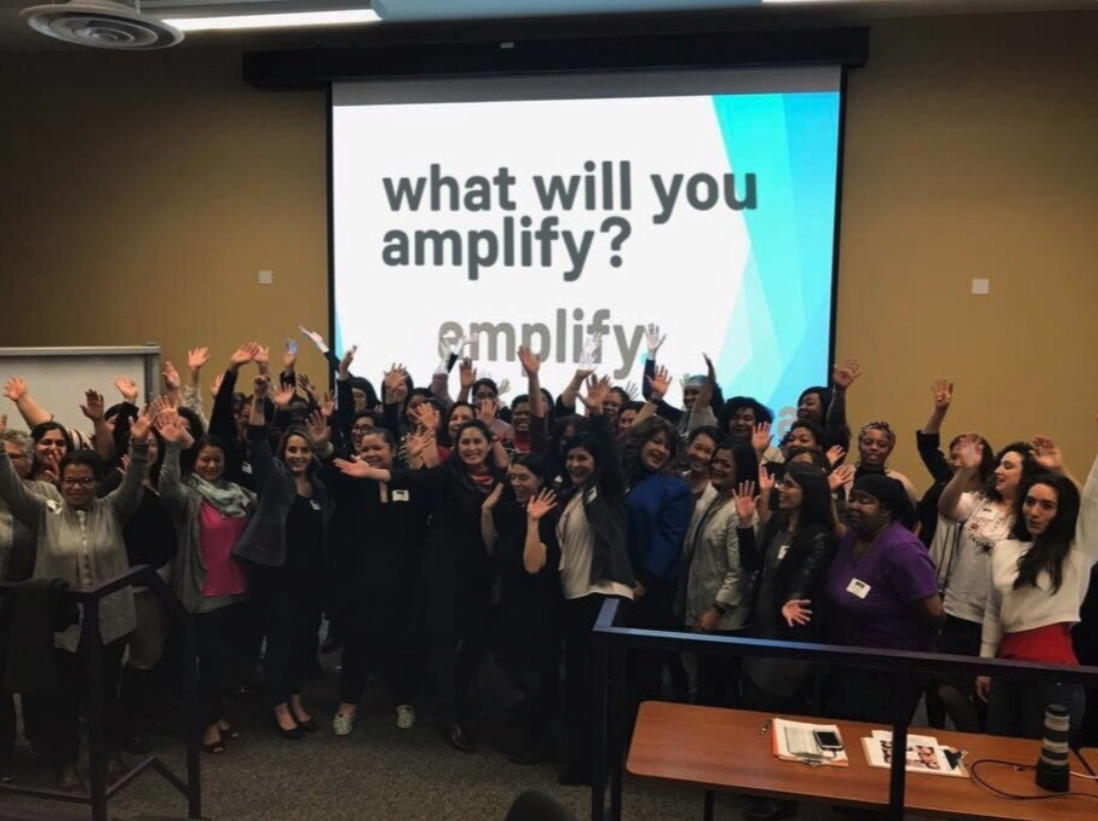
![[ACTION ALERT] Urge the Utilities & Transportation Commission to put short- and long-term protections in place for utility customers](https://pugetsoundsage.org/wp-content/uploads/2020/06/1411502618000-watershutoff.jpg)
